Click here 👆 to get an answer to your question ️ find dy/dx of y=cos^1(2x/1x^2) surendrakumarch50 surendrakumarch50 Math Secondary School answered Find dy/dx of y=cos^1(2x/1x^2) 1 See answer Advertisement Advertisement surendrakumarch50 is waiting for your help Add your answer and earn points If y = cos^–1(2x) 2cos^–1√(1 – 4x^2), 0 < x < 1/2 , find dy/dx asked in Limit, continuity and differentiability by Raghab ( 505k points) differentiation If y=cos1(2x1/14x), fin dy/dx Login Remember Register;

Misc 5 Differentiate Cos 1 X 2 Root 2x 7 Teachoo
Y=cos^-1(2x/1 x^2) find dy/dx
Y=cos^-1(2x/1 x^2) find dy/dx-If ` y= ( cos x ^(2))^(2) , "then" (dy)/(dx) ` is equal to Explanation We can also rewrite the function y = x2 1 −2 x2 1 = 1 − 2 x2 1 = 1 −2(x2 1)−1 Then, through the chain rule, we see that dy dx = −2( −(x2 1)−2) d dx (x2 1) = 2 (x2 1)2 (2x) = 4x (x2 1)2 Answer link




यद Y Cos 1 2x 2cos 1 Sqrt 1 4x 2 द ख ए क Dy Dx 2 Sqrt 1 4x 2 Youtube
1 dy/dx ज्ञात कीजिएIf y = sec (tan –1 x), then dy/dx is If y = sec1 1/(1 2xSolution For If y=cos^(1)(2x)2cos^(1)sqrt(14x^2),1/2
Identify that we are looking at dy/dx, not dx/dy and realise the relationship that dy/dx=1/(dx/dy)2)Try find dx/dy;cot = 1/tan or (tan)1 Hence, x=(tan y )1 implying dx/dy = (1)(tan y)2 (sec 2 y ) =(1)(sec 2 y)/(tan 2 y )Given 1tan 2 =sec 2, from students memory or able to derive from cos 2 sin 2 = 1 we get dx/dy=(1)(1tan 2 y)/(tan 2 y)and dy/dx= (1)(tan 20 votes 1 answer If x = a(cos t t sin t) and y = a(sin t t cos t) then find the value of d^2x/dy^2 at t = pi/4 asked in Mathematics by Samantha (3k points) continuity and differntiability;Click here👆to get an answer to your question ️ If sin^2x cos^2y = 1 find dy/dx Join / Login >> Class 12 >> Maths >> Continuity and Differentiability >> Derivatives of Composite Functions and Chain Rule >> If sin^2x cos^2y = 1 find Question If sin 2 x cos 2 y = 1 find d x d y Medium Open in App Solution Verified by Toppr sin 2 x cos 2 y = 1 ⇒ sin 2 x = 1 − cos 2 y
Ex 53, 13 Find 𝑑𝑦/𝑑𝑥 in, y = cos–1 (2𝑥/( 1 𝑥2 )) , −1 < x < 1 𝑦 = cos–1 (2𝑥/( 1 𝑥2 )) Let 𝑥 = tan𝜃 𝑦 = cos–1 ((2 tan𝜃)/( 1 𝑡𝑎𝑛2𝜃 )) 𝑦 = cos–1 (sin 2θ) 𝑦 ="cos–1" (〖cos 〗(𝜋/2 −2𝜃) ) 𝑦 = 𝜋/2 − 2𝜃 Putting value of θ = tan−1 x 𝑦 = 𝜋/2 − 2 〖𝑡𝑎𝑛〗^(−1) 𝑥 SiGet answer Find the (dy),(dx) of y=cos^(1)sqrt((1cosx),2) Getting Image Please Wait or Find the (dy)/(dx) of y=cos^(1)sqrt((1cosx)/2) Apne doubts clear karein ab Whatsapp par bhi Try it now CLICK HERE 1x 15x 2x Loading DoubtNut Solution for you Watch 1000 concepts & tricky questions explained!Find dy/dx ycos(x)=x^2y^2 Differentiate both sides of the equation Differentiate the left side of the equation Tap for more steps Differentiate using the Product Rule which states that is where and The derivative of with respect to is Simplify the expression Tap for more steps Move to the left of Rewrite as Rewrite as Differentiate the right side of the equation Tap for




यद Y Cos 1 2x 2cos 1 Sqrt 1 4x 2 द ख ए क Dy Dx 2 Sqrt 1 4x 2 Youtube



Given Y 5x 3 1 X 2 Cos 2 2x 1 Find Dy Dx Sarthaks Econnect Largest Online Education Community
Find dy/dx of y=cos^1 (2x)*sin^1 (2x) Show transcribed image text Expert Answer Who are the experts?Find Dy/Dx for Y = Sec^(1) (1/(2x^2 1)), 0 < X < 1/Sqrt2 CBSE CBSE (Arts) Class 12 Question Papers 17 Textbook Solutions MCQ Online Tests 1 Important Solutions 24 Question Bank Solutions 199 Concept Notes & Videos 532 Time Tables 18 Syllabus Advertisement Remove all ads Find Dy/Dx for Y = Sec^(1) (1/(2x^2 1)), 0 < X < 1/Sqrt2 MathematicsDerivative of cos inverse (1x^2/1x^2)differentiate cos^1(1x^2/1x^2) with respect to tan^1x



If Y Cos 1 X 2 Prove That 1 X 2 D 2y Dx 2 X Dy Dx 2 0 Hence Find Y2 When X 0 Sarthaks Econnect Largest Online Education Community



Find Dy Dx Y Cos 1 1 X 2 1 X 2 0 X 1 Sarthaks Econnect Largest Online Education Community
The lefthand side is the derivative of x2y Let u = x2y Solving the differential equation dxdu = cos2x is a routine integration Implicit differentiation If \sin y=2\sin x, show (\frac {dy} {dx})^2=1 3\sec^2y Implicit differentiation If siny = 2sinx, show (dxdy Hint use 4\sin^2 y = 3\cos^2 y Let's start by determining the derivative of y = cos^1(x) y = cos^1(x) cosy = x Through implicit differentiation, you should have siny(dy/dx) = 1 dy/dx = 1/siny Since siny = sqrt(1 cos^2y), we can rewrite as dy/dx= 1/sqrt(1 cos^2y) Since x = cosy, we can substitute dy/dx= 1/sqrt(1 x^2) Now, let's differentiate e^(2x) The derivative of any function of the formAndrew Droffner, studied Mathematics at Rutgers University (1995) Answered 2 years ago Author has 47K answers and 13M answer views (1 3 x sin (y)) d x − x 2 cos (y) d y = 0 This is a first order nonlinear differential equation It can be made an exact equation using an integrating factor Follow the method of exact



1




If Y Cos 1 2x 3sqrt 1 X 2 13 Then Find Dy Dx Youtube
If y = e √x, then dy/dx equals If y = log ((1√x)/(1√x)), then dy/dx = If y = log x x, then the value of dy/dx is If y = log a x, x>0, then dy/dx = If y = m 1 x c 1 is the regression line of y on x and y = m 2 x c 2 is the regression line of x on y, then which is true?Click here👆to get an answer to your question ️ The solution of (1 x^2)dy/dx 2xy = cos x is(a) If dx/dt = 15, find dy/dt, when x = 4 (b) If dy/dt = 2, find dx/dt, when x = 40 Solution We will differentiate the given function with respect to t using the chain rule and substitute the given values a) Given, y = √(2x 1) can be written as y = (2x 1) 1/2 Differentiate the function w r to t dy/ dt = 1/ 2 (2x 1)1/2 × 2 dx




Ex 5 3 9 Find Dy Dx In Y Sin 1 2x 1 2x2 Chapter 5




Find Dy Dx In The Following Y Cos 1 2x 1 X 2 1 Lt X Lt 1 Youtube
Y= cos^1(2x 3 sqrt(1x^2) / sqrt(13)) find dy/dx Ans Hello Student, Please find answer to your question Apply the chain rule y= cos^1(2x 3 sqrt(1x^2) / sqrt(13)) find dy/dx y= cos^1(2x 3 sqrt(1x^2) / sqrt(13)) find dy/dx taniska, 7 years ago Grade12 × FOLLOW QUESTION We will notify on your mail & mobile when someone answers this question Enter email id Enter mobileShare It On Facebook Twitter Email 1 Answer 1 vote answered by Find dy /dx y = cos ^1 (2x /1x^2 ),1 < x < 1 asked in Mathematics by sforrest072 (128k points) continuity and differntiability;




If Cos 1 2x 2 1 2pi 2cos 1 X Then Youtube




If Y Tan 1 2x 1 X 2 Then Prove That Dy Dx 2 1 X 2
Solve your math problems using our free math solver with stepbystep solutions Our math solver supports basic math, prealgebra, algebra, trigonometry, calculus and more199 K views 900 people like this Like Share Share Related Video 135Answer (1 of 3) y=(x1)(x2)/x^1/2 = (x^23x2)/x^1/2 dy/dx=√x(2x3)1/2√x(x^23x2)/(√x)^2 dy/dx =2x(2x3)(x^23x2)/2x√xx dy/dx =4x^2–6xx^23x



Find Dy Dx Y Cos 1 2x 1 X 2 1 X 1 Sarthaks Econnect Largest Online Education Community
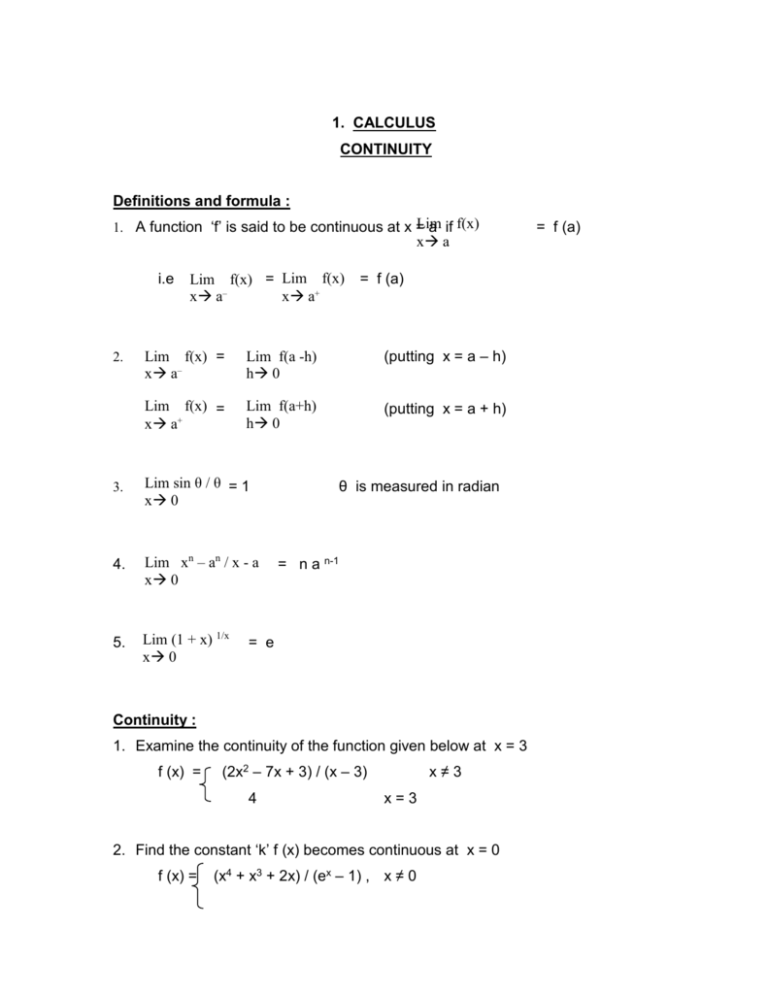



Calculus
If y = cos–1(2x) 2cos–1√(1 – 4x2), 0 < x < 1/2, find dy/dx Welcome to Sarthaks eConnect A unique platform where students can interact with teachers/experts/students to get solutions to their queriesAnswr Join / Login 12th Maths Continuity and Differentiability Differentiation of Functions in Parametric Form Find dy/dx of y = cos^1 maths Asked on by Kanak Morye Find d x d y of y = cos − 1 Find dy/dx if y = cos^1((1 x^2)/(1 x^2)), 0 < x < 1 ← Prev Question Next Question → 0 votes 680 views asked in Mathematics by Abhinav03 (647k points) edited by faiz Find dy/dx if y = cos1 ((1 x 2)/(1 x 2)), 0 < x < 1 continuity;



Find Dy Dx When X Cos 1 1 1 T 2 And Y Sin 1 1 1 T 2 T R Sarthaks Econnect Largest Online Education Community
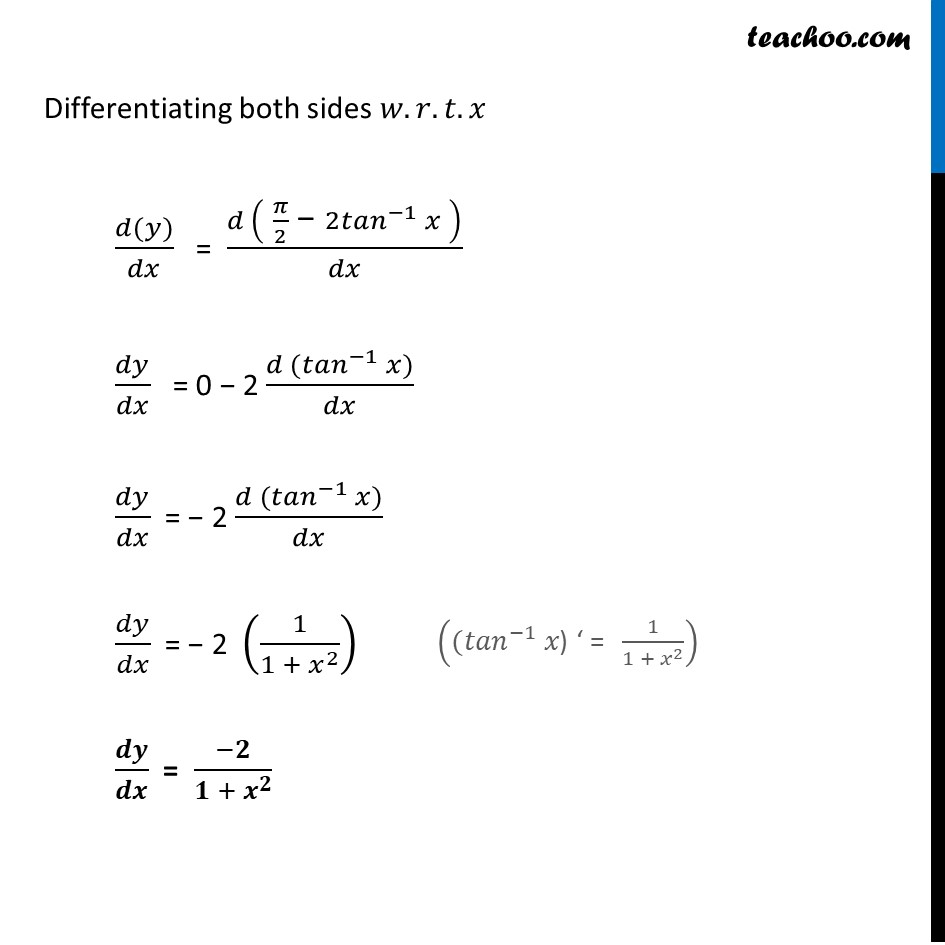



Ex 5 3 13 Find Dy Dx In Y Cos 1 2x 1 X2 Ncert Ex 5 3
Click here👆to get an answer to your question ️ Find dy/dx of y = cos^1 ( 2x/1 x^2 ) , 1 < x < 1MATHS DIFFERENTIABILITY Easy to understand Useful for Class 10, class11, class 12 Diploma Sem1 m1 EngineeringCBSE, ICSE, ISC, SSC, HSC, IGCSE, GCSE, A LEView upvotes Divya Answered 1 year ago Author has 175 answers and 3K answer views Given y=cos (1x) Differentiate with respect to x, dy/dx=




Differentiation Of Cos Inverse X Cos 1 X Teachoo With Video
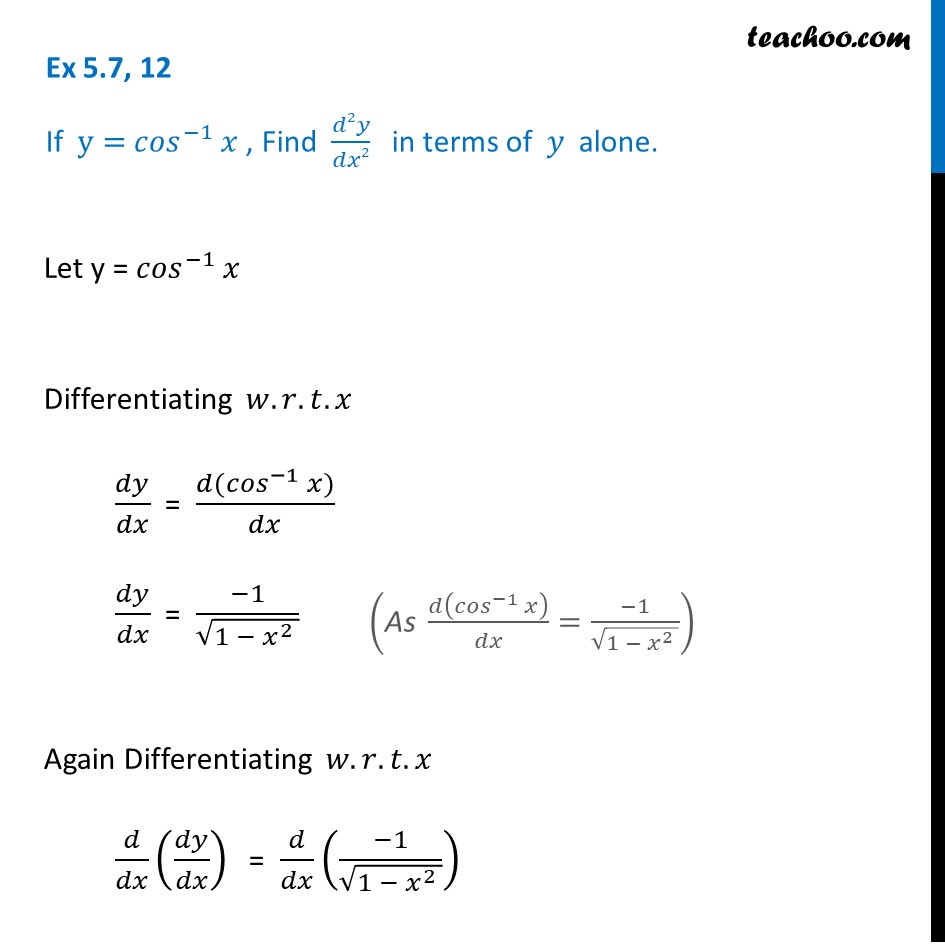



Ex 5 7 12 If Y Cos 1 X Find D 2y Dx 2
How do I solve (2x y cos (xy)) dx x cos (xy) dy = 0?Y = cos^{1}( 2x/1x^{2}), 1 <//googl/JQ8NysLinear Differential Equation cos(x)dy/dx sin(x)y = 1 How to solve a linear differential equation
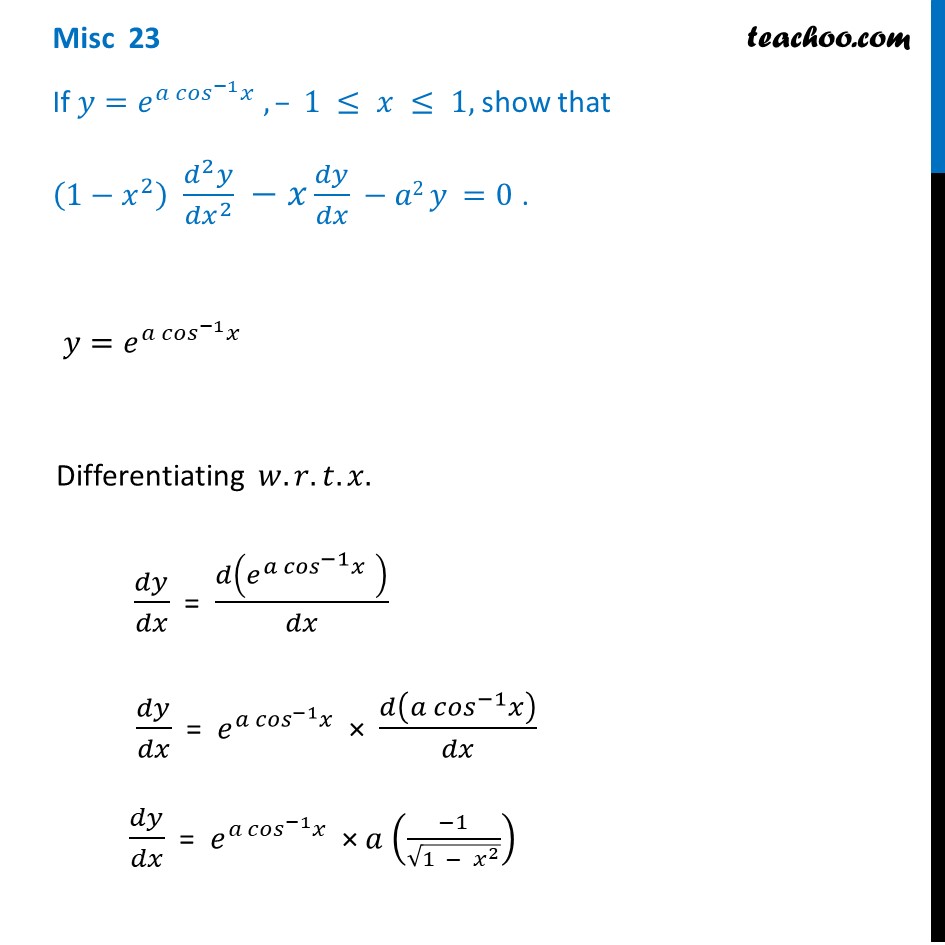



Misc 23 If Y Ea Cos 1 X Show 1 X2 D2y Dx2 X Dy Dx
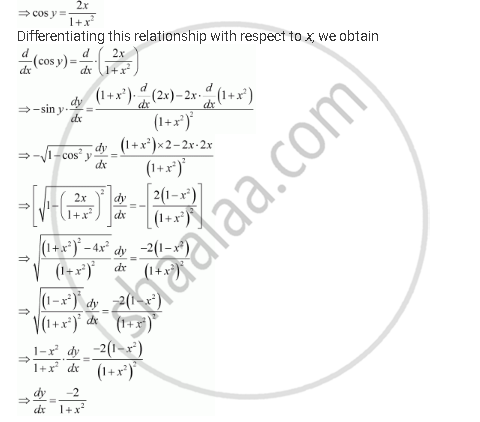



Find Dx Dy For Y Cos 1 2x 1 X 2 1 X 1 Mathematics Shaalaa Com
Click here👆to get an answer to your question ️ Find dy/dx of sin^2 x cos^2 y = 1 Join / Login >> Class 12 >> Maths >> Continuity and Differentiability >> Derivatives of Implicit Functions >> Find dy/dx of sin^2 x c Question Find d x d y of sin 2 x cos 2 y = 1 Medium Open in App Solution Verified by Toppr We have sin 2 x cos 2 y = 1 Differentiating both sides wrt x, weAsk a Question If y=cos^1(2^x1/14^x), fin dy/dx ← Prev Question Next Question → 0 votes 704k views asked in Mathematics by Nisa (598k points) If y=cos1 (2 x1 /14 x), fin dy/dx differential equations;1 Consider the curve y=x^2 a write down (dy)/(dx) My answer 2x The point P(3,9) lies on the curve y=x^2 b Find the gradient of the tangent to the curve at P My answer 2*3=6 c Find the equation of the normal to the curve




If Y Cos 1 X 2 1 X 2 1 Then Dy Dx




Find Dy Dx In The Following Y Cos 1 2x 1 X 2 1 X 1
Explanation d dx (tan−1X) = 1 1 X2 xcosy = sin(x y) = sinxcosy cosxsiny ⇒ xcosy −sinxcosy = cosxsiny, dividing both sides by cosy ≠ 0, we get x − sinx = cosxtany ⇒ tany = x −sinx cosx ⇒ y = tan−1( x −sinx cosx), Let, u = x − sinx cosx, then dy dx = 1 1 ( x−sinx cosx)2 cosx(1 − cosx) −(x −sinx)( −Please Subscribe here, thank you!!! Find dy/dx y= cos 1 (2x1/14x) Maths Continuity and Differentiability NCERT Solutions;




If Y Cos 1 2x 1 X 2 1 Lt X Lt 1 Then Dy Dx Is Equal To




How To Find The Derivative Differentiate Cos 1 X Sin 1 X Derivative Collection Ap Calc Calculus Youtube
Experts are tested by Chegg as specialists in their subject area We review their content and use your feedback to keep the quality high 100% (2 ratings) 1find dy/dx when sinh 3y=cos 2x 2calculate dy/dx if Ln(xy)=e^x/y 3calculate dy/dx when xy^3y=3x 4calculate dy/dx when y^2=(3x 1)^3/9x 2 5when dy/dx =(x 6)^1/2 6find the area lying above the xaxis and below the parabolic curve y=4x x^2 16Evaluate cot 2x dx 17Evaluate sin 4xcos2 4x dx 18Evaluate e3x dx 19Evaluate cos2 5x dx Evaluate 6555 views around the world You can reuse this answer Creative Commons License




The Derivative Of Cos 1 2x 2 1 W R T Cos 1x Is



Find Dy Dx X Cos 1 1 1 T2 1 2 Y Sin 1 T 1 T2 1 2 Explain In Great Detail Mathematics Topperlearning Com 6ebbrcqq
Dy/dx = 2xsin(x) (x^2)cos(x) 2cx (1/x)dy/dx = 2sin(x) xcos(x) 2c (1/x)dy/dx 2y/x^2 = 2sin(x) xcos(x) 2x 2sin(x) 2c = xcos(x) EDIT It's been a while since I gave this answer, and I've noticed how hard it is to read, so I made a few changes It's still probably really hard to read though REST OF EDIT If you're feeling Ex 96, 5 For each of the differential equation given in Exercises 1 to 12, find the general solution cos2𝑥 𝑑𝑦𝑑𝑥𝑦=𝑡𝑎𝑛𝑥 0≤𝑥< 𝜋2 Step 1 Put in form 𝑑𝑦𝑑𝑥 Py = Q cos2x 𝑑𝑦𝑑𝑥 y = tan x Dividing by cos2x, 𝑑𝑦𝑑𝑥 y 1𝑐𝑜𝑠2𝑥 = tan𝑥𝑐𝑜𝑠2𝑥Login Create Account Class12science » Maths Class12commerce » Maths Class12humanities » Maths Continuity and Differentiability Find dy/dx y= cos 1 (2 x1 /14 x) Share with your friends




Find Dy Dx X Cos 1 1 1 T2 1 2 Y Sin 1 T 1 T2 1 2 Explain In Great Detail Mathematics Topperlearning Com 6ebbrcqq




Derivatives Of Inverse Trigonometric Functions Sin 1 2x Cos 1 X 2 Tan 1 X 2 Sec 1 1 X 2 Youtube
Dy/dx = x 2 ( sin(x)) cos(x)(2x) dy/dx = 2x(cos(x)) x 2 (sin(x)) Answered by Joseff S • Maths tutor Views See similar Maths A Level tutors Need help with Maths?One to one online tuition can be a great way to brush up on your Maths knowledgeHave a Free Meeting with one of our hand picked tutors from the UK's top universities Find a tutor Related Maths A Level Click here👆to get an answer to your question ️ Find dy/dx of y = cos^1 ( 2x/1 x^2 ) , 1 < x < 1 LEARNING APP;Find dy/dx Of Sin2 X Cos2 Y = 1 Get the answer to this question and access other important questions, only at BYJU'S




13 Derivative Find Dy By Dx Of Y Cos 1 2x Upon 1 X2 Youtube




If Y Cos 1 X Find D 2y Dx 2 In Terms Of Y Alone
If y=cos^1(2xsqrt(1x^2)), find dy/dx Maharashtra State Board HSC Arts 12th Board Exam Question Papers 167 Textbook Solutions Online Tests 70 Important Solutions 1872 Question Bank Solutions Concept Notes & Videos 346 Time Tables 24 Syllabus Advertisement Remove all ads If y=cos^1(2xsqrt(1x^2)), find dy/dx Mathematics andAnswer (1 of 8) dy/dx = cos(xy) To solve this differential equation, let xy=u Differentiate wrt x 1 dy/dx = du/dx => dy/dx = du/dx 1 The equation becomes du/dx 1 = cos u => du/dx = 1 cos u => du/(1cos u) = dx => du/2cos^2 u/2 = dx => (1/2)sec^2(u/2)du = dx Integrating both Ex 53, 11 Find 𝑑𝑦/𝑑𝑥 in, 𝑦 = cos–1 ((1− 𝑥^2)/( 1 𝑥2 )) , 0 < x < 1 𝑦 = cos–1 ((1− 𝑥^2)/( 1 𝑥2 )) Putting x = tan θ y




Find The Dy Dx Of Y Cos 1 Sqrt 1 X 2 2 Youtube




Differentiation Of Cos Inverse X Cos 1 X Teachoo With Video
Solution For Find (dy)/(dx) in the following y=cos^(1)((2x)/(1x^2)),1 < x < 1Weekly Subscription $249 USD per week until cancelled Monthly Subscription $799 USD per month until cancelled Annual Subscription $3499 USD per year until cancelled Explanation We can use here the formula for derivative of sin−1x, which is d dx sin−1x = 1 √1 − x2 As such to find derivative dy dx for y = sin−12x using chain rule is given by dy dx = 1 √1 − (2x)2 × d dx (2x) = 2 √1 −4x2 Answer link



3




Derivative Of Y Cos 1 2x Youtube
Transcript Ex 53, 14 Find 𝑑𝑦/𝑑𝑥 in, y = sin–1 (2𝑥 √(1−𝑥^2 )) , − 1/√2 < x < 1/√2 y = sin–1 (2𝑥 √(1−𝑥^2 )) Putting 𝑥 =𝑠𝑖𝑛𝜃 𝑦 = sin–1 (2 sin𝜃 √(1−〖𝑠𝑖𝑛〗^2 𝜃)) 𝑦 = sin–1 ( 2 sin θ √(〖𝑐𝑜𝑠〗^2 𝜃)) 𝑦 ="sin–1 " (〖"2 sin θ" 〗cos𝜃 ) 𝑦 = sin–1 (sin〖2 𝜃
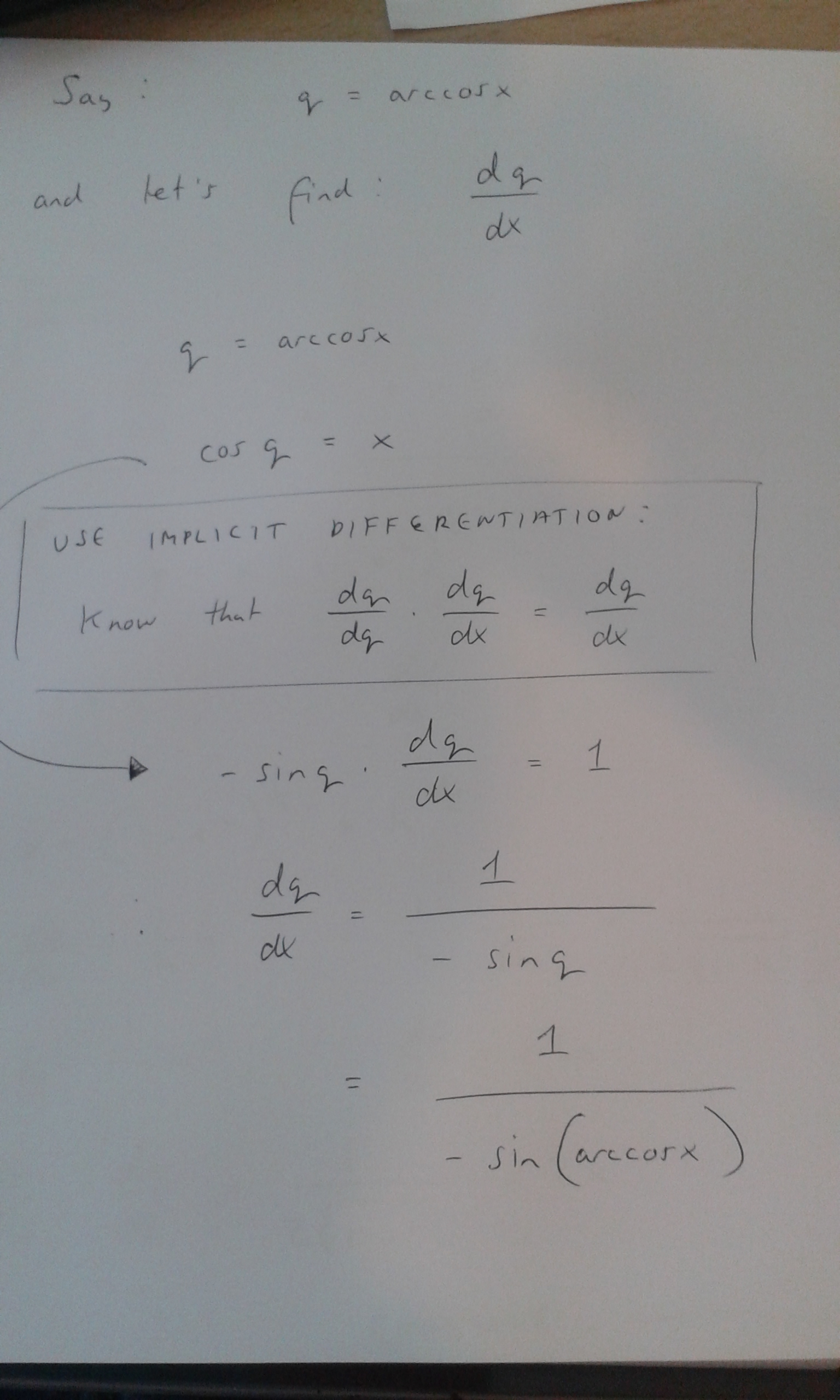



How Do You Differentiate Y Arccosx X Sqrt 1 X 2 Socratic




Y Cos X 1 Sin X Find Dy Dx Derivative Youtube




Y 2 Cos 1 X A 2 Find Dy Dx Brainly In




Ex 2 2 13 Inverse Trigonometry Tan 1 2 Sin 1 2x 1 X2



If Y Cos 1 2x 1 X 2 Find Dy Dx Sarthaks Econnect Largest Online Education Community
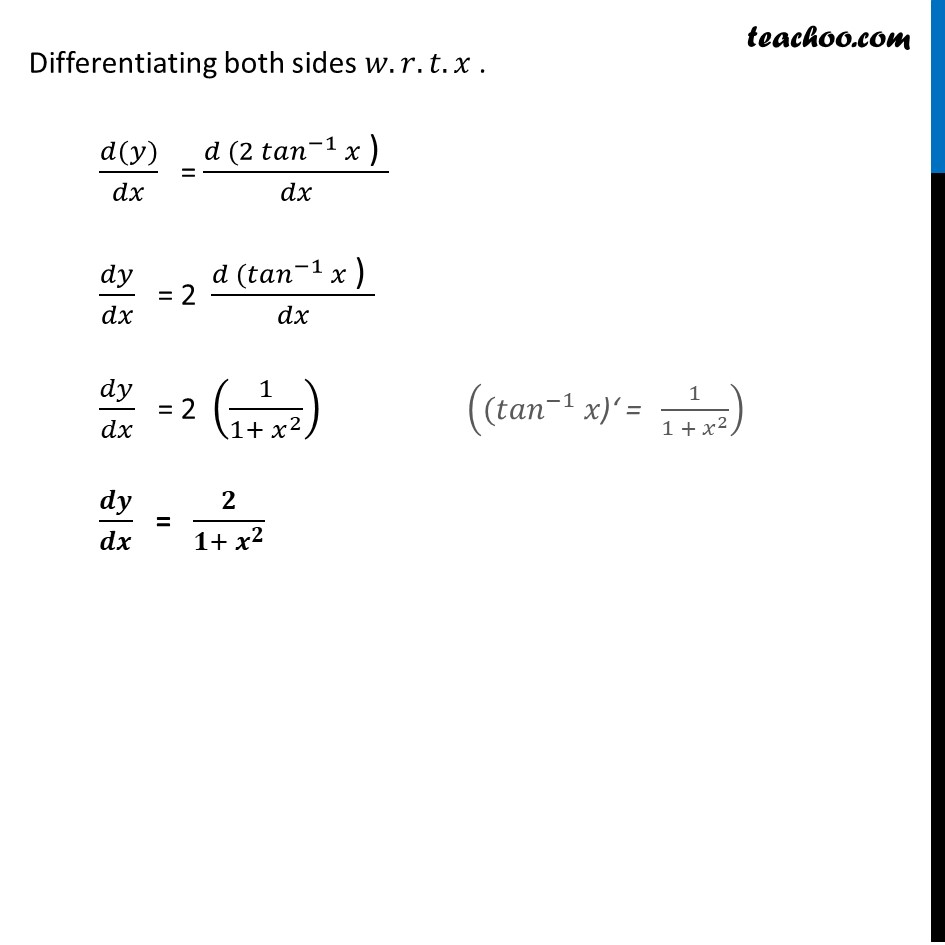



Ex 5 3 11 Find Dy Dx In Y Cos 1 1 X2 1 X2 Ex 5 3
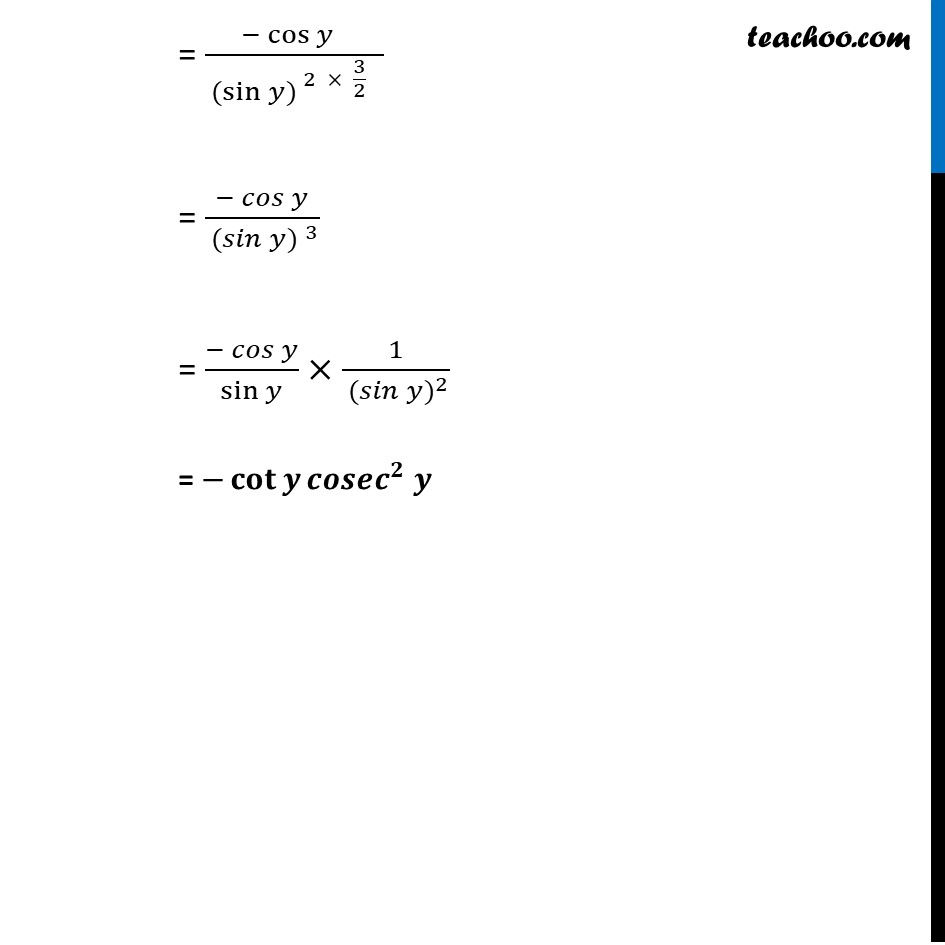



Ex 5 7 12 If Y Cos 1 X Find D 2y Dx 2 In Terms Of Y Alone




If Y Cos 1 2 X 1 1 4 X Find Dy Dx
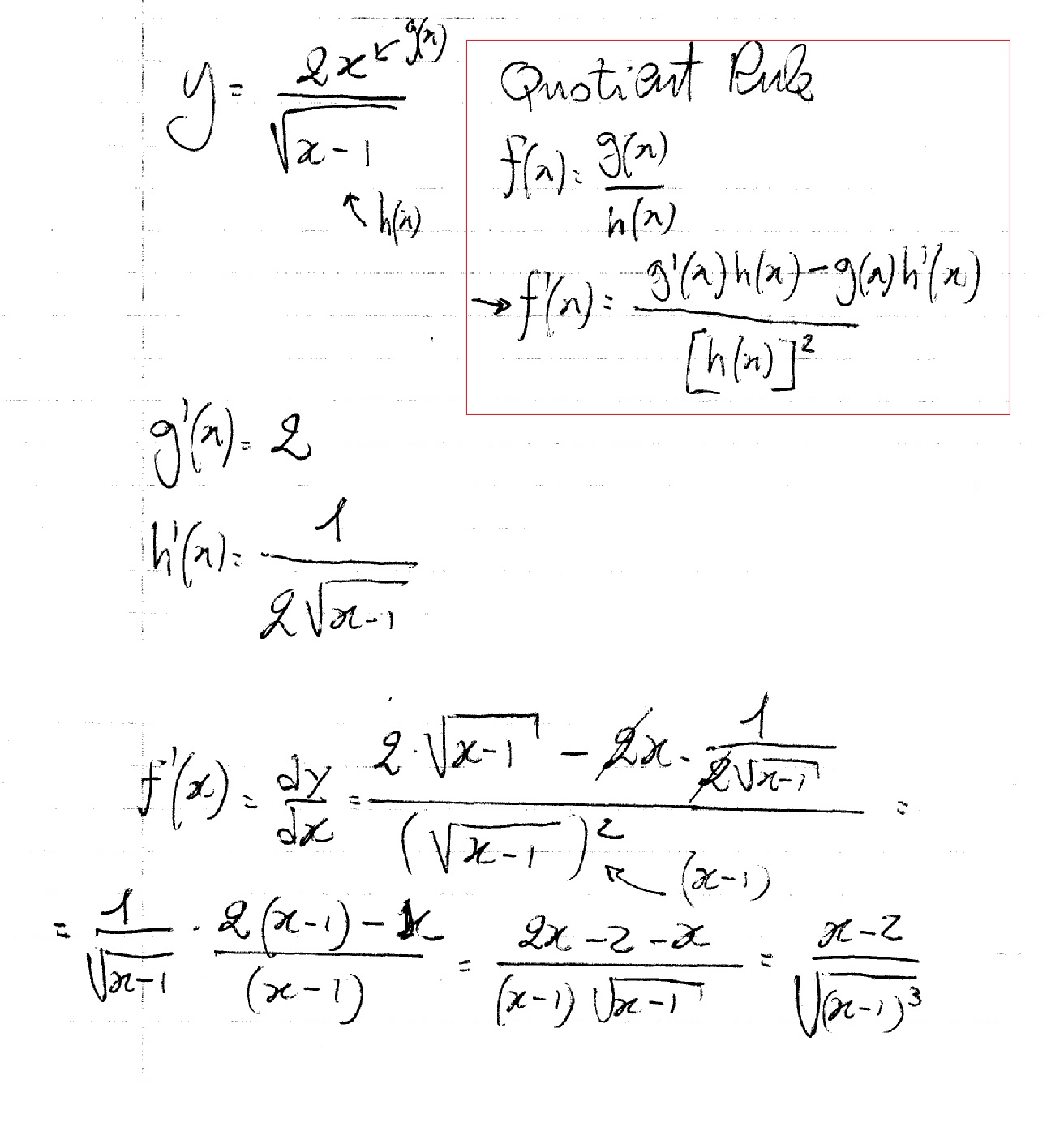



How Do You Find Dy Dx For Y 2x Sqrt X 1 Socratic
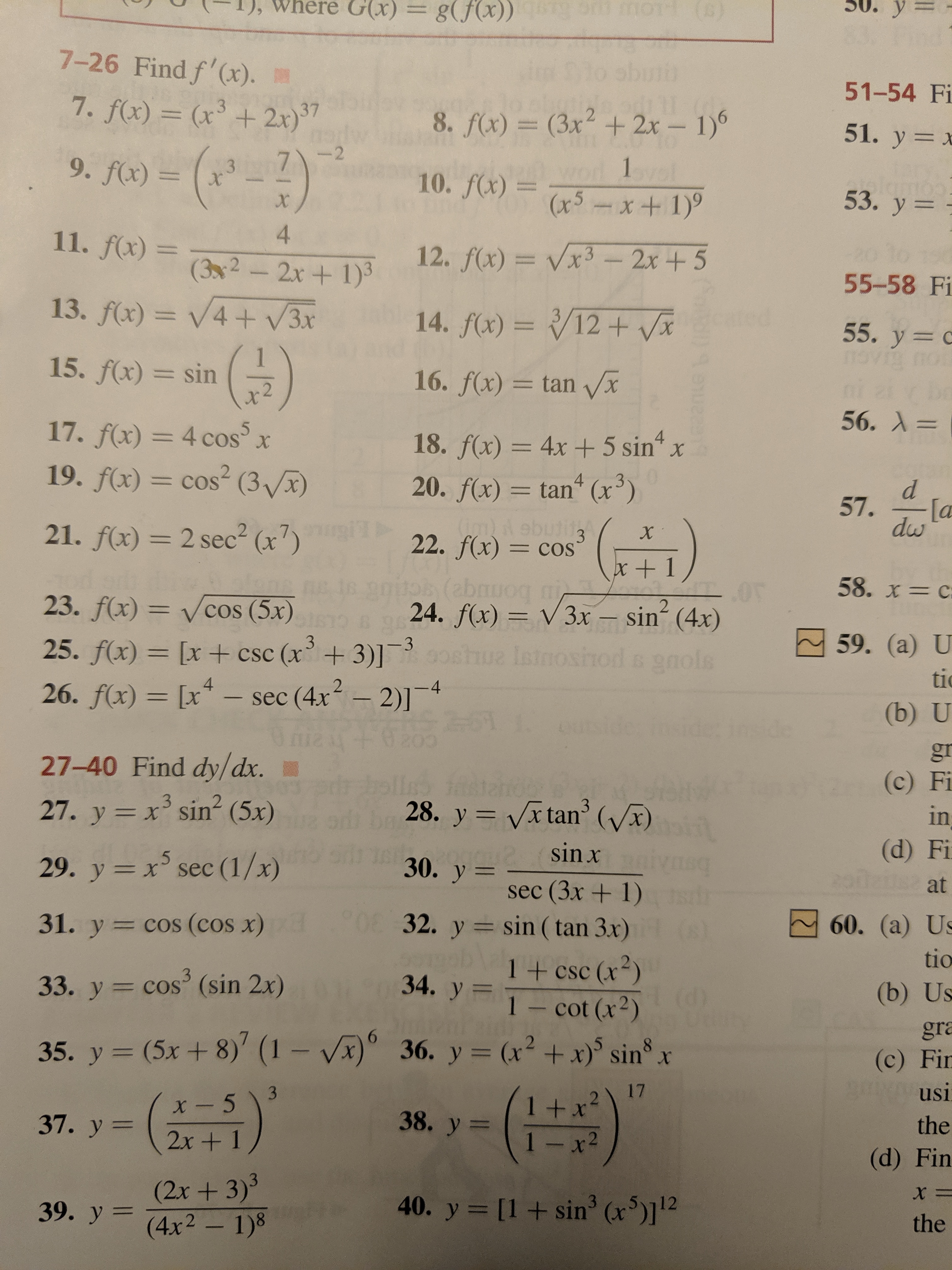



Answered G X U G Fx 00 O 7 26 Find F X Bartleby




Solve For X Cos 1 X 2 1 X 2 1 1 2tan 1 2x 1 X 2 2pi 3 Youtube




Find Differentiation Of Cos Inverse 2x 1 X 2 Youtube



What Is Math Frac Dy Dx Math If Math X Cos Y Y Cos X 1 Math Quora




Find The Dy Dx Of Y Cos 1 Sqrt 1 X 2 2




If Y Cos 1 4x 3 3x Then Dy Dx Youtube




Example 3 Show That Sin 1 2x 1 X 2 2 Sin 1 X Class 12
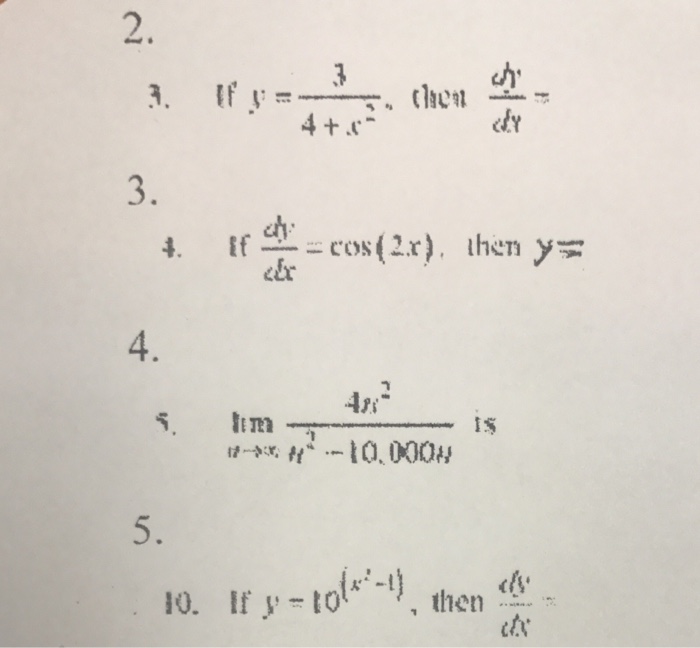



Solved If Y 3 4 X 2 Then Dy Dx If Dy Dx Cos 2x Chegg Com




Cos Inverse Derivative 35 Images Derivative Of Cosec Beyond Calculus 12x1 T05 04 Differentiating Inverse Trig 10



If Cos 1 2x 3 1 X 2 13 Find Dy Dx Sarthaks Econnect Largest Online Education Community




Ex 5 3 11 Find Dy Dx In Y Cos 1 1 X2 1 X2 Ex




If Y Cos 1 1 2 Sin 2 X Then Dy Dx



If Y Log Cos X Sin X Log Sin X Cos X 1 Sin 1 2x 1 X 2 Find Dy Dx At X P 4 Sarthaks Econnect Largest Online Education Community




If Y Sqrt 1 Cos 2x 1 Cos 2x Find Dy Dx Youtube



Find Dy Dx Y Cos 1 2x 1 X 2 1 X 1 Sarthaks Econnect Largest Online Education Community




If Y Cos 1 1 X 1 X Then Find Dy Dx Youtube
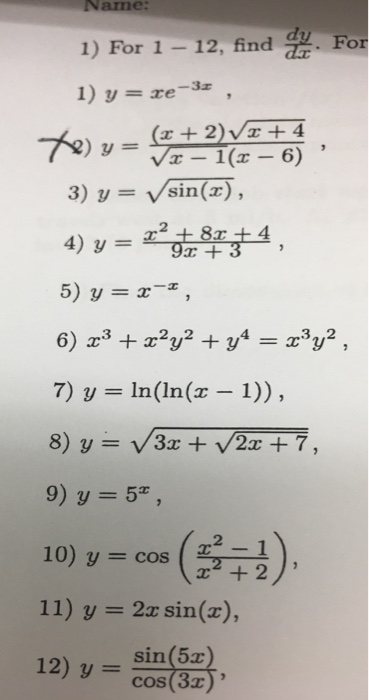



Solved 1 For 1 12 Find Dy Dx For 1 Y Xe 3x 2 Y Chegg Com
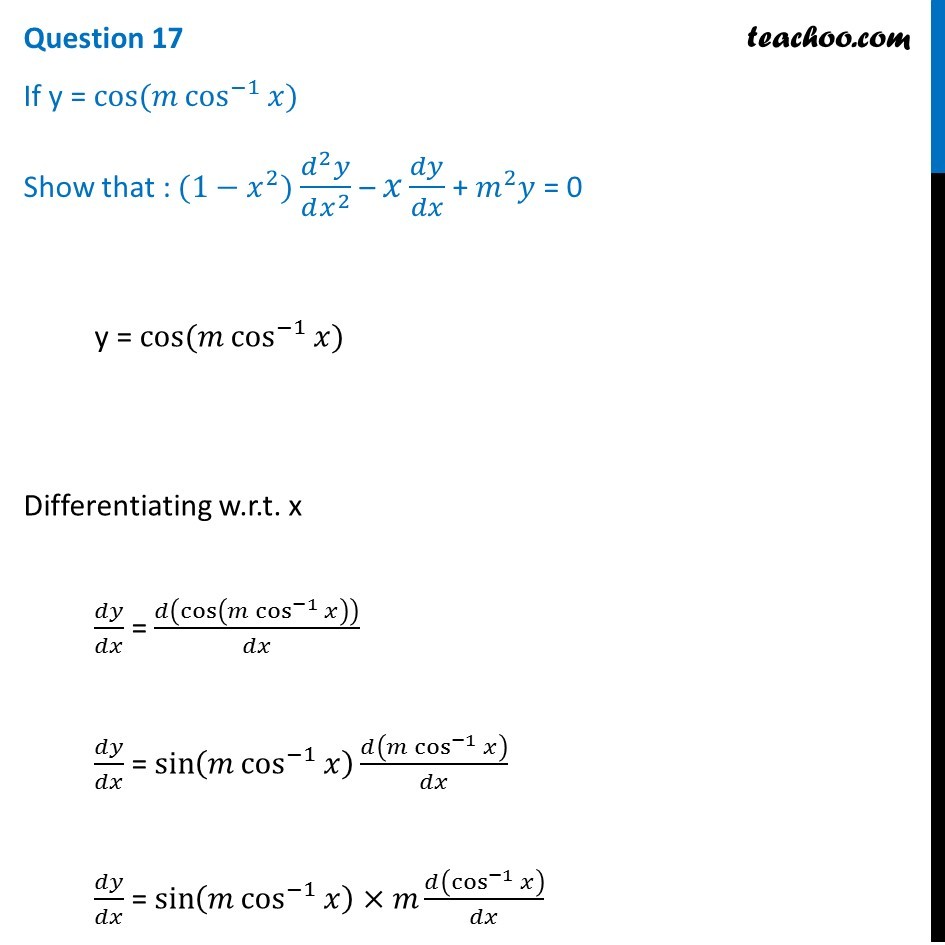



If Y Cos M Cos 1 X Show That 1 X 2 Y



How To Find Dy Dx When Y Sin X 2 Y 2 Quora




If Y Cos 1 1 2sin 2 X Find Dy Dx Youtube




Y Cos 1 3x 4 1 X 2 5find Dy Dx Brainly In




If Y Log 1 Cos2 X 1 E2x 1 2 Show That Dy Dx E2x 1 E2x Sin X Cos X 1 Cos2 X Show Each And Every Step Mathematics Topperlearning Com Idjkxezz




If Y Cos 1 X 3 Then Dy Dx




The Derivative Of Cos 1 2x 2 1 W R T Cos 1 Is Youtube




If Y Cos 1 2x 3sqrt 1 X 2 Sqrt 13 F I N D Dy Dx



If Y X Cos 1 X 1 X 2 Log 1 X 2 Then Prove That Dy Dx Cos 1 X 1 X 2 3 2 Sarthaks Econnect Largest Online Education Community
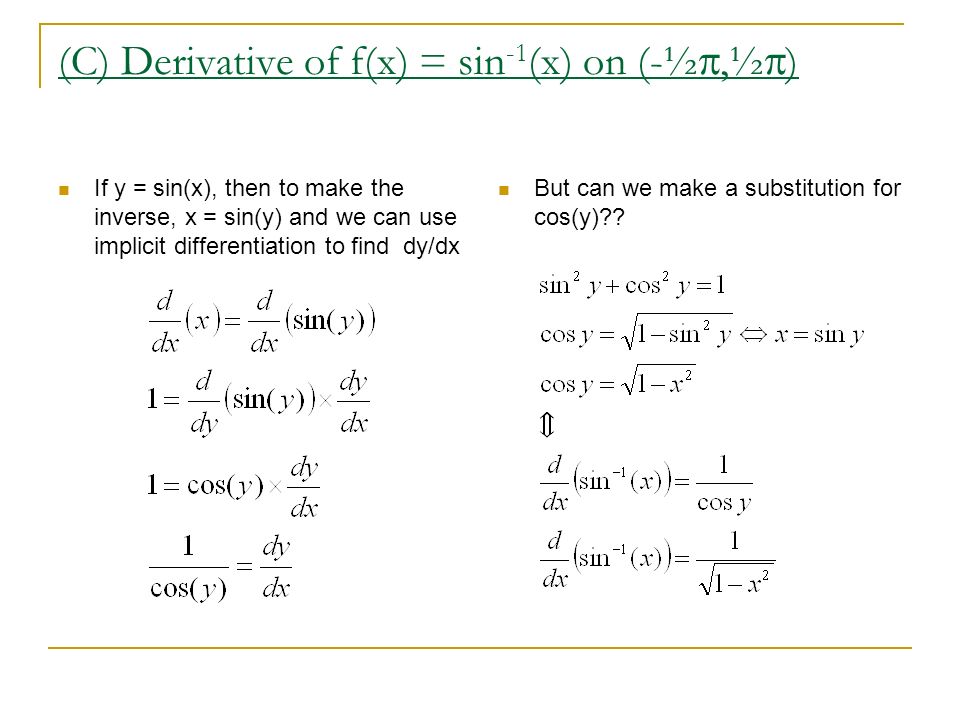



B1 6 Derivatives Of Inverse Trig Functions Ppt Download




Prove Cos 1 X Cos 1 X 2 Root 3 3x 2 2 Pi 3 Teachoo




46 If Y Cos 1 Left Frac 2 X 3 Sqrt 1 X 2 Sqrt 13 Right Find Frac D Y D X




Find The Derivative Of Y Cos 1 E 2x 1 E 2x Youtube




Misc 5 Differentiate Cos 1 X 2 Root 2x 7 Teachoo




Ex 5 3 13 Find Dy Dx In Y Cos 1 2x 1 X2 Ncert Ex



How To Find Dy Dx Of Sin 1 2x And Y Sin 1 2x 3 Quora



If Y Cos 1 2x 3 1 X 2 13 Then Find Dy Dx Sarthaks Econnect Largest Online Education Community



3
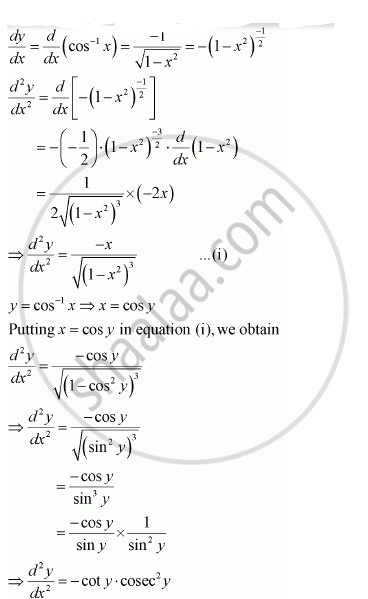



If Y Cos 1 X Find D 2y Dx 2 In Terms Of Y Alone Mathematics Shaalaa Com




If Y Cos 1 3x 4 1 X2 1 2 5 Find Dy Dx Please Ans Soon Maths Continuity And Differentiability Meritnation Com




Misc 5 Differentiate Cos 1 X 2 Root 2x 7 Teachoo
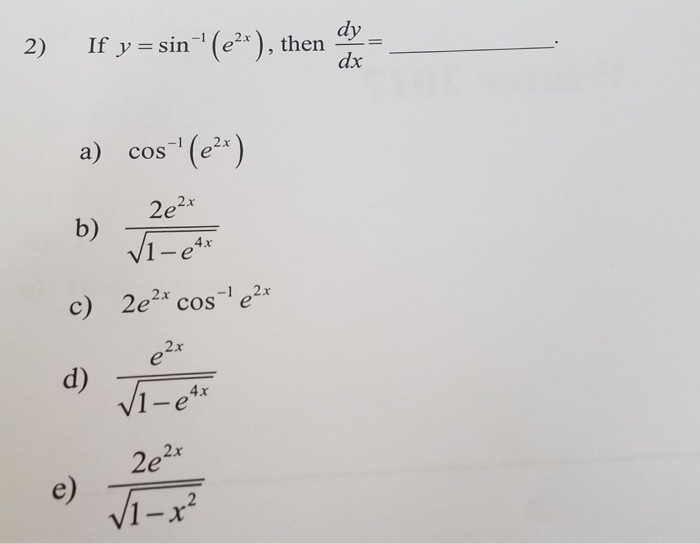



Solved If Y Sin 1 E 2x Then Dy Dx A Chegg Com
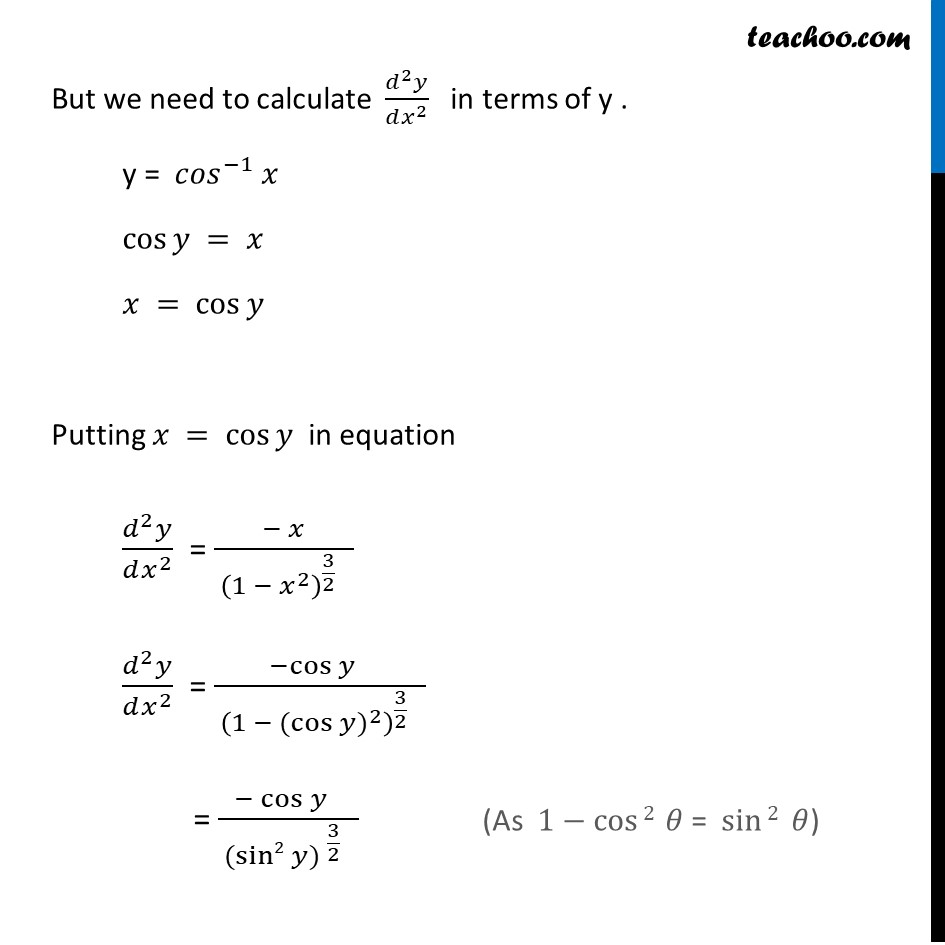



Ex 5 7 12 If Y Cos 1 X Find D 2y Dx 2 In Terms Of Y Alone
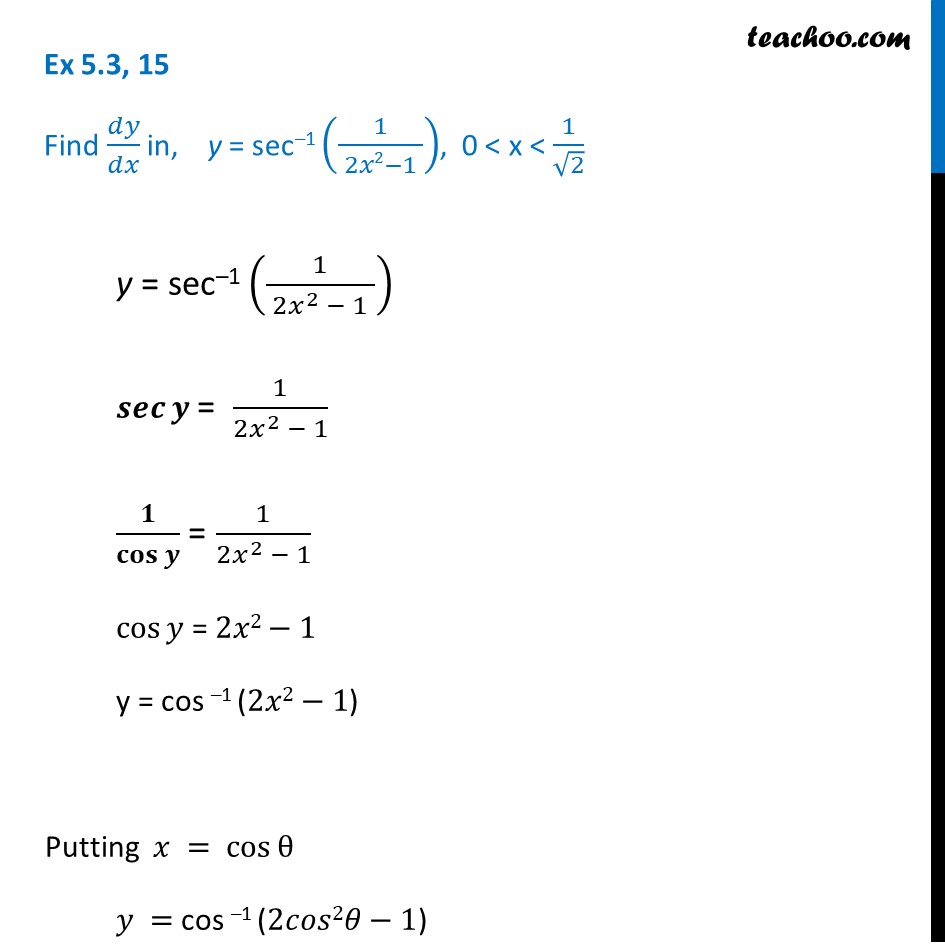



Ex 5 3 15 Find Dy Dx In Y Sec 1 1 2x2 1 Chapter 5




If Y Cos X 2 2 Then Dy Dx Is Equal To Youtube



If Y Cos 1 3x 4 1 X 2 5 Find Dy Dx Sarthaks Econnect Largest Online Education Community



If Y Cos 1 2x 2cos 1 1 4x 2 0 X 1 2 Find Dy Dx Sarthaks Econnect Largest Online Education Community



If Y Cos 1 2x 2 Cos 1 1 4x 2 X 0 Find Dy Dx Sarthaks Econnect Largest Online Education Community



If Y Cos 1 2x 3 1 X 2 13 Then Find Dy Dx Sarthaks Econnect Largest Online Education Community




43 If Y Cos 1 2x 2 Cos 1 Rootover 1 4x2 1 2 Lessthan X Lessthan 0 Find Maths Continuity And Differentiability Meritnation Com



If Y Sin 1x 2 Cos 1x 2 Then Prove That 1 X 2 D 2y Dx 2 X Dy Dx 4 Sarthaks Econnect Largest Online Education Community




If Y Cosx X Sin Inverse Root 3x Find Dy Dx Maths Continuity And Differentiability Meritnation Com




If Cos 1 X Cos 1 Y Cos 1 Z Pi Where 1 Lt X Y Z Lt 1 Then Find The Value Of X 2 Y Youtube




If Y Cos 1 2x 2cos 1 Sqrt 1 4x 2 1 2 Lt X Lt 0 Find Dy Dx Youtube
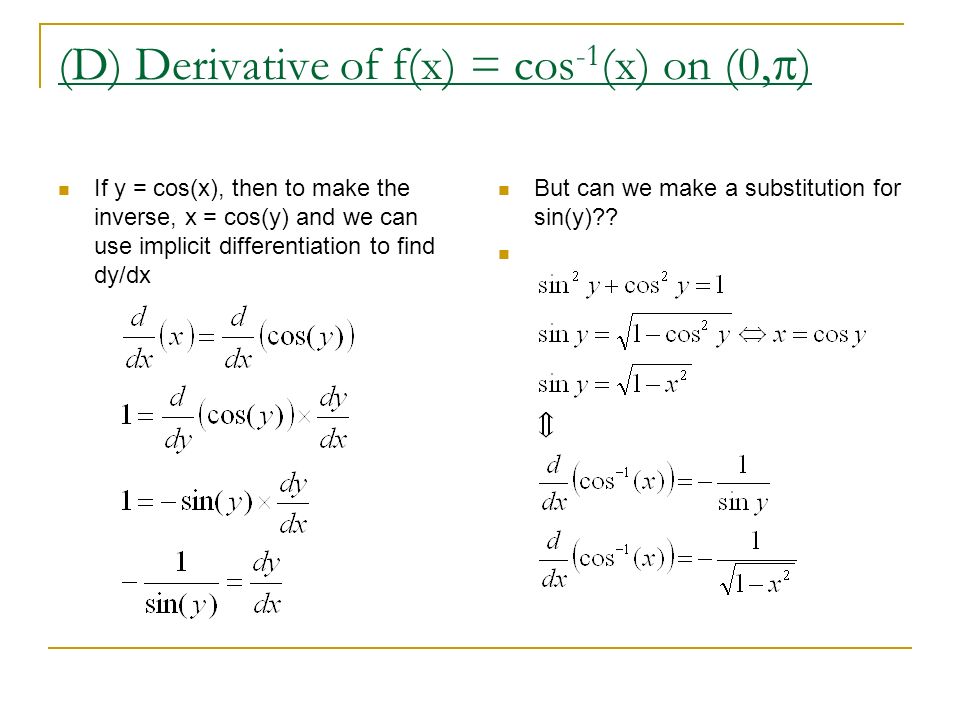



B1 6 Derivatives Of Inverse Trig Functions Ppt Download



1



Does Y Cos 1 X Find Dy Dx Quora




Ex 5 3 14 Find Dy Dx In Y Sin 1 2x Root 1 X2 Cbse
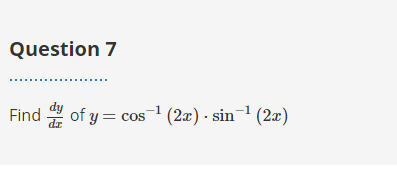



Solved Question 7 Find Dy Of Y Cos 1 2a Sin 1 2a Chegg Com




Implicit Differentiation Advanced Example Video Khan Academy



How To Find Dy Dx When Y Cos 3cos X 4sinx 5 Quora




If Y Cos 1 2x 1 X 2 Then Dy Dx Is Equal To




Y Cos 1 3x 4 1 X 2 5find Dy Dx Brainly In




If Y Cos 1 2x 3 1 X 13 Find Dy Dx Brainly In
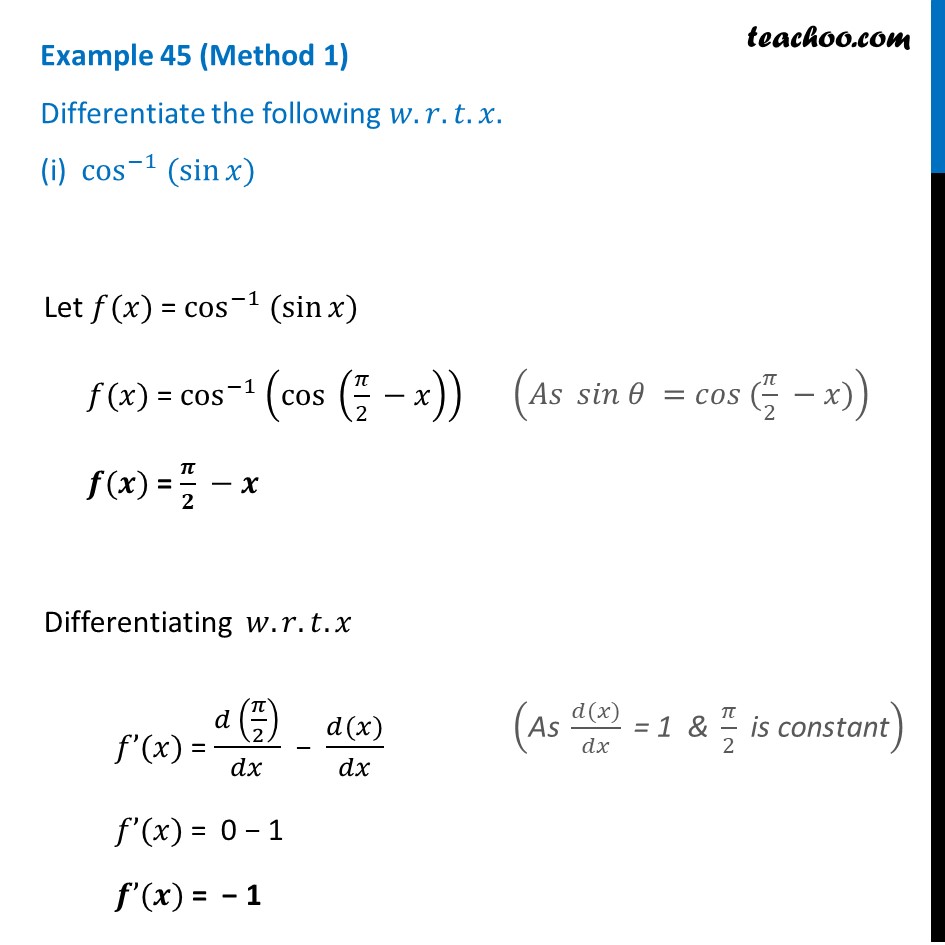



Example 45 I Differentiate Cos 1 Sin X W R T X Teachoo




If Y Cos 1 1 2sin 2 X Find Dy Dx


